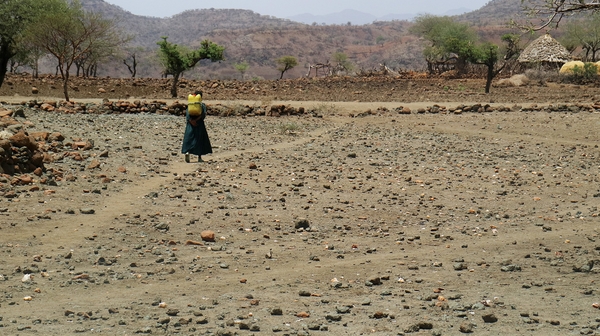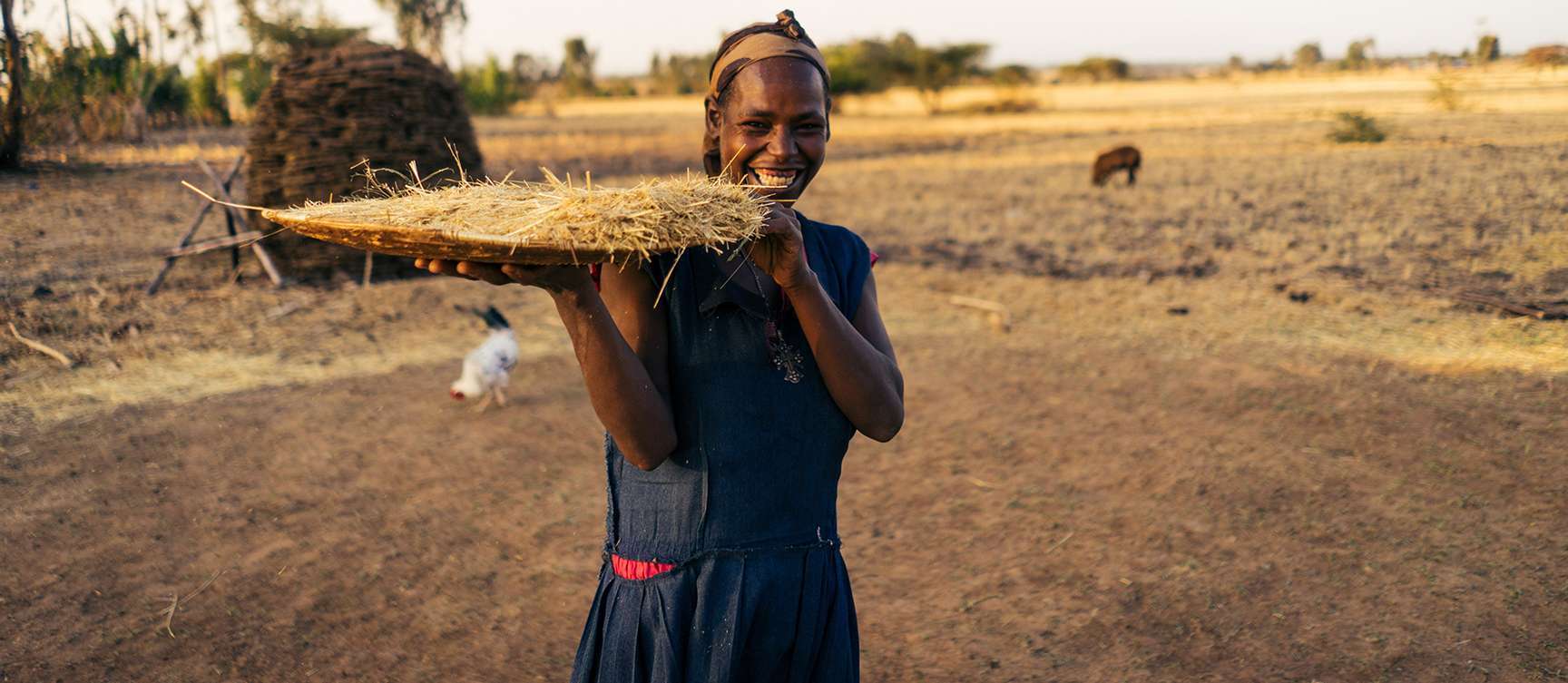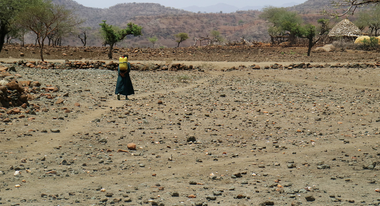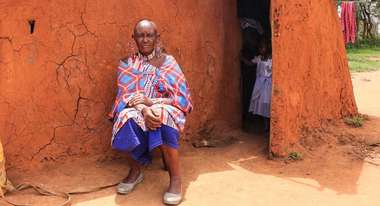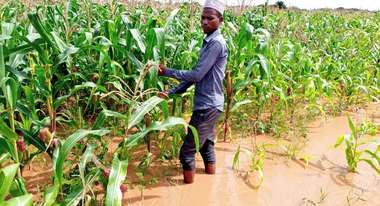Welthungerhilfe warns of hunger crisis in East Africa.
Human Lives at Stake as Drought Ravages Kenya
The situation in the Kenyan Marsabit county is desperate. People are walking as far as 40 kilometers in search of food, water and pasture.
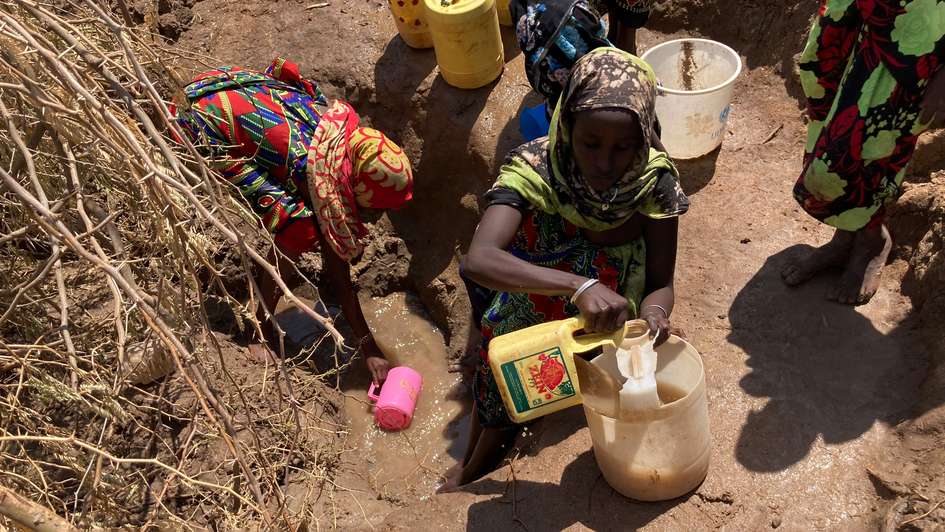
''I haven't been able to feed my children since this morning. The animals can no longer produce any milk, they are too weak. Our children can't go to school. We have only taken the little water that is available and are hoping to get food aid before the sun goes down again," says Illo Elema a mother of four in Bulgabo Ward in Kenya's Marsabit county.
Marsabit County has made a name globally as the cradle of mankind. Currently, there is suffering at the cradle due to a prolonged drought. Over 200,000 people are bearing the brunt of an acute food and water shortage. North-Horr sub-county hasn't seen any rain for at least two years now; the clouds have simply disappeared from the skies.
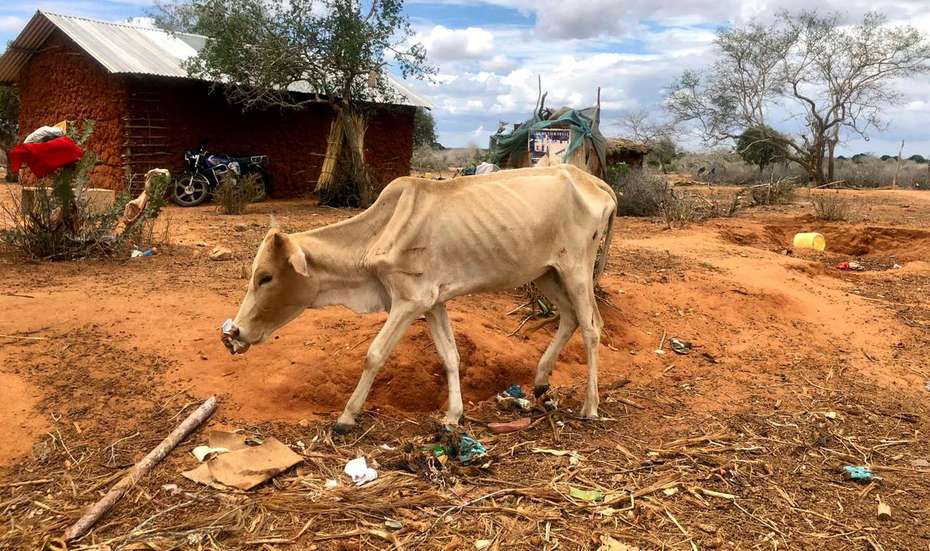
Families are struggling to feed themselves and their livestock
Dried up water pans and barren agricultural fields are now dominating Kenya's second largest county. Women are forced to walk for several kilometers in search of water. The little agricultural land is covered in dust, with carcasses spread across the ground.
Water is a big challenge here, livestock and humans all drink from one fountain which is about ten kilometers away. The families also share the little food they have with their animals, in the hope to keep them alive. "The food we eat we also boil for the weak animals so that it becomes chewable for them. It interferes with our family budget, but we have no option," says Omar Haji, the chief of the ward.
Prolonged drought has forced hundreds of children out of school
As the third term of the school calendar has started, many pupils are yet to return to class. The low turnout is due to the lack of food. Many children have turned to be full-time herders. They are forced to travel many kilometers in search of pasture and water for their livestock. The majority are migrating even as far as the Ethiopian border.
The classes remain largely empty. The children who do come cannot attend school the entire day since there is no food, and the scorching sun affects concentration.
Billy Salash Teacher at Bulgabo primary schoolPeople walk for days trying to find pasture
The drought has taken its toll on the animals, some herders report they have been unable to find proper pasture even after many days of walking. "This is our third day, we are walking towards the Ethiopian border hoping to find pasture for our livestock. Some dropped dead, some are becoming weak and can no longer walk we have to leave them to die. We are weak ourselves too. We fetch water when we find any, and also ask for food in the villages we pass," says Sachu, a herder.
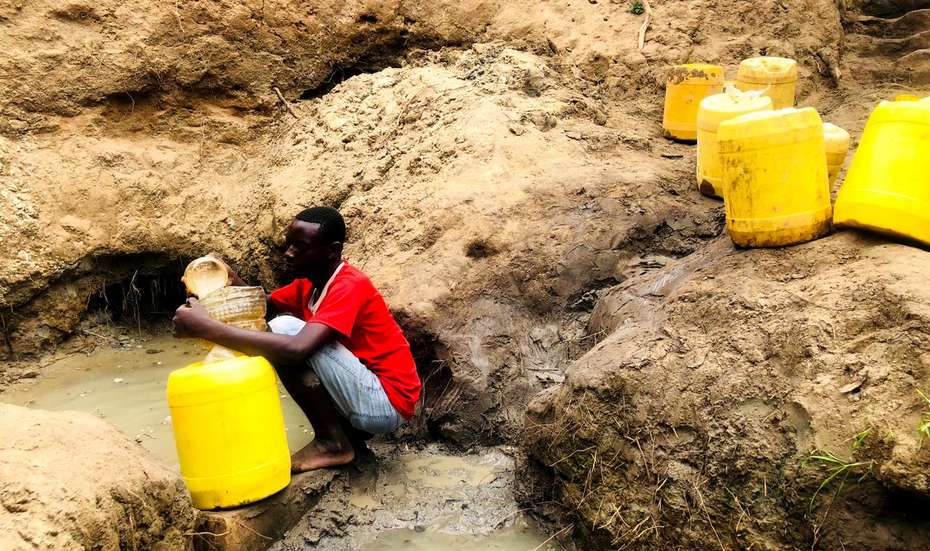
Hunger is a problem here, people are migrating as far as 40 kilometers in search of food, water and pasture. Women and children travel in the late evening to search for water; they sleep there to get water in the early morning before going back home.
Malnutrition is at a record high
Malnutrition cases continue to be closely monitored at health centers. Reports show that several children under the age of five face moderate or severe malnutrition. Salo Okille's one-year-old baby is severely malnourished. She can't remember the last time she breastfed him. "I have had very little milk since I gave birth to him, I think he breastfed for about two months only. I have been giving him water and soup," says Salo. The local Community Health Assistant tells me that the lack of food and water results in mothers not having breastmilk; if they are lucky they can eat one meal a day, and the food is mostly boiled maize. With such cases of malnutrition, children are given RUTF – Ready to Use Therapeutic Food.
RUTF is high in energy and protein, with added electrolytes, minerals, and vitamins, specifically designed to treat severe acute malnutrition in the rehabilitation phase. It does not have to be mixed with water, so it is microbiologically safe and enables treatment in the community.
The current drought has been declared a national disaster
The situation in Marsabit continues to be monitored closely by government agencies like the National Drought Management Authority NDMA. Recent reports have indicated that about 2.8 million Kenyans are at the brink of starvation should climate change continue to bite hard. President Uhuru Kenyatta has declared the current drought a national disaster. Locals are asking for immediate help with water and food."If it doesn't rain and the situation continues likes this, there will be a catastrophe. The situation is really really bad," says Galo, the area chief.
Mitigation measures include distribution of food, supplementary feeding, a school feeding program, enhancement of integrated outreach programs in health facilities, and community sensitization on afforestation.
How Welthungerhilfe is helping
Welthungerhilfe plans to support pastoralists who have had to suffer loss of livestock. We also want to save women from the long-distance walks to fetch water by rehabilitating boreholes and thus increasing water yields within the community, for easy access of livestock, and for household use which will translate to better childcare services. Welthungerhilfe also plans to support food production through the provision of farm inputs in the next few months as we anticipate the long rains in April. 500 vulnerable households will receive cash transfers so they can buy food at the local market.





